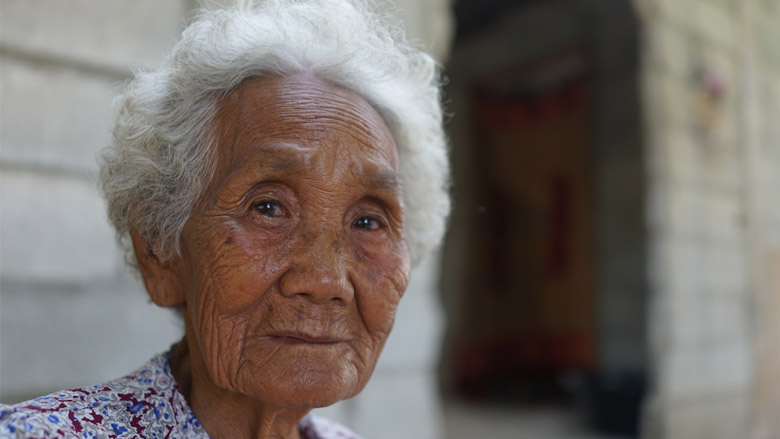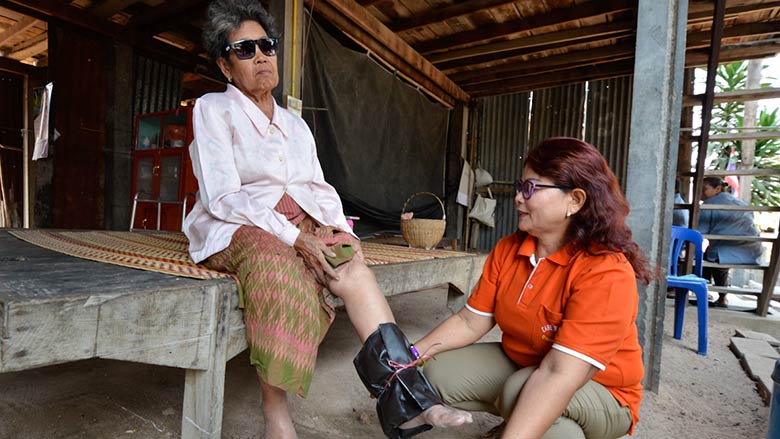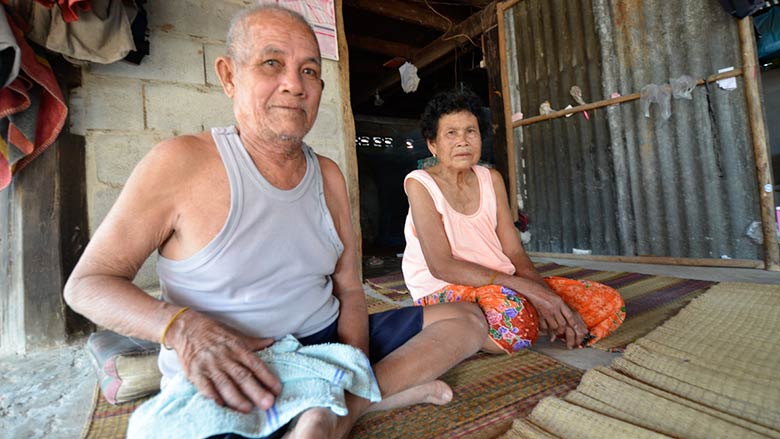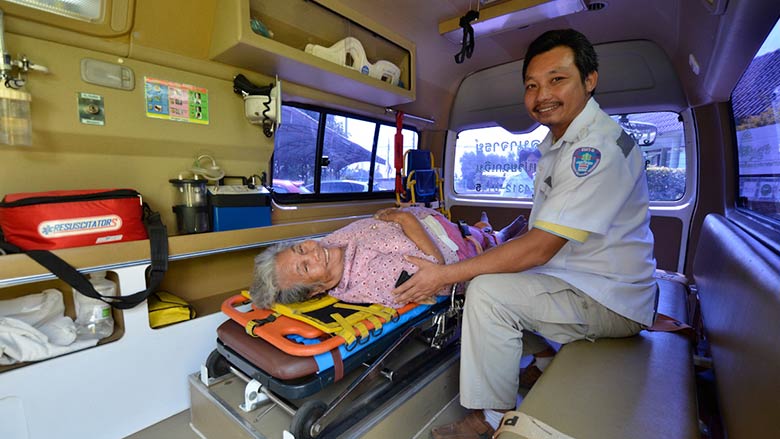Boonruan Khokpae, an 82-year-old villager with cardiovascular disease who receives a social pension stipend of 600 baht a month ($17), sits alone on an old front porch and talks about her health.
“My health is not good and I don’t see a doctor often because I have no money and there is nobody taking care of me,” she says. “Even if I go, I have to hire a taxi to take me to the hospital. The longer I stay there, the more I have to pay for the taxi to wait.”
In rapidly aging Thailand, access to health care is indispensable for older people. Despite universal health coverage in Thailand since 2002, the lack of transportation options and support for non-medical costs make access to health facilities difficult according to a World Bank study, Closing the Health Gaps for the Elderly: Promoting Health Equity and Social Inclusion in Thailand.
Jensak Ayarat, Municipal Clerk in Kalasin province, witnesses first-hand the challenges facing elderly people in his village.
“The ones living too far from public health centers have problems accessing health care,” he says. “While the government supports elderly care through social pensions and health insurance schemes, many obstacles are taking away their rights to use the services and it’s not fair.”
To promote health equity and boost social support for the most vulnerable elderly poor, several local administrative organizations in Kalasin province are implementing initiatives to help meet the rising demand of elderly care.




